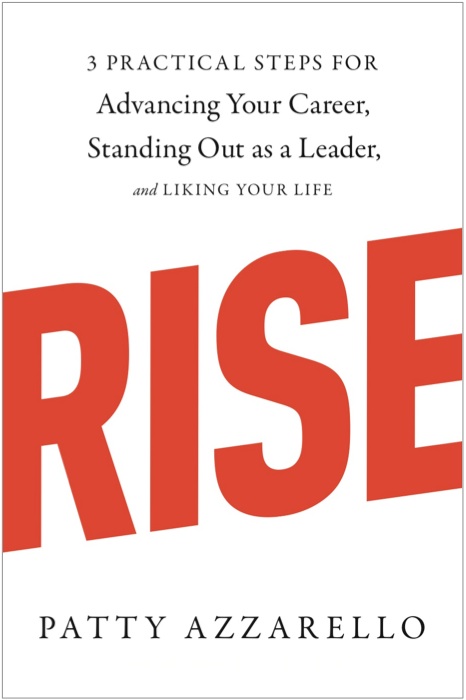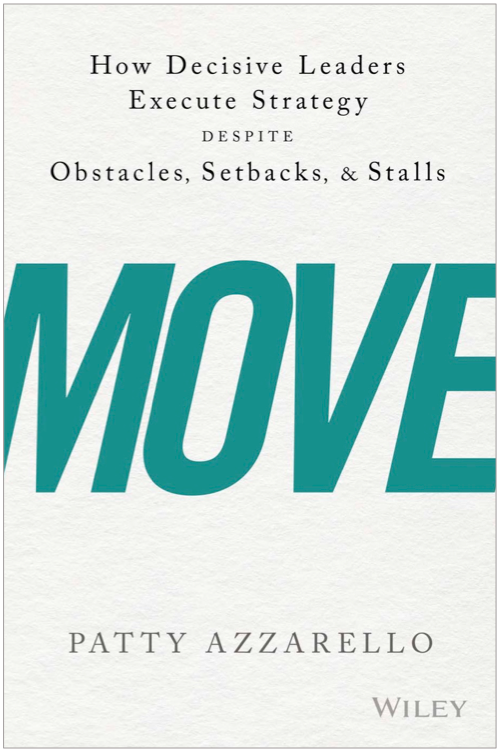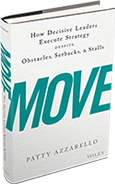But I thought I was a good listener!
Fairly deep into my career I did one of those 360 evaluations where people above, below and around you in the organization fill out a long questionnaire about how they perceive you.
You do this to understand both your strengths and your potential blind spots that you ought to do something about.
I won’t go into details here only to say that much of the feedback was not surprising, except for 1 thing which truly shocked me.
From my employee base, I got a the lowest score possible for: “Is Patty a good listener?”
Not a low score, the LOWEST score.
I was stunned by this. This was not a blind spot. I AM a good listener. As I told the coach taking me through this assessment, “I am a great listener, I am fully present to people, I care, I am curious, I am respectful, I am invested…”
I was a bit triggered by this so I protested a lot!
Intention vs. Behavior
She then gave me the lecture about, “It’s important not to confuse intention with actual behavior”.
“Yeah, yeah… I get that. But that’s not what this is. Something is wrong here.”
For the other things I scored low on, some were known weaknesses to me, and others were a little surprising where I said, “Yes, I can see that my intention here is stronger than what I am actually giving people, I could improve that. But this listening thing… I just don’t get it.”
So we continued to talk about it and the answer emerged.
I had never run an organization this large before. This organization had around 3000 people from all over the world. And this survey literally went across the world to hundreds of people.
The big aha, that I finally arrived at…
The vast majority of people in my organization never got the opportunity to be listened to by me!
They never got to experience my wonderful, active, curious, respectful listening.
So they felt disconnected.
And they gave me a terrible (deserved) score on listening.
Changing my view of listening
I realized that what I needed to do, was not to improve my listening skills, but to create listening opportunities for everyone across the organization.
So I began to get very intentional about not just communicating, but listening. Here is a list of what I added to my communication plan:
1. Every time I visited a site anywhere in the world, in addition to the required business, and meeting with the executives in my organization, I scheduled and conducted:
- A breakfast meeting and/or a lunch meeting with 15-20 individual contributors that the site selected
- A meeting with all the mid-level managers to get feedback on how things were going
- An all-hands meeting with plenty of time for Q&A
2. I scheduled “office hours” each week (appropriate for all time zones), where anyone in the organization could reserve a 20 minute spot to talk to me about anything
3. I created a web page where people could submit questions and feedback
4. I had two people on my team who polled the organization for concerns. This became a segment called “Heard in the Hallways” about real questions and concerns people had right now, that I addressed in my monthly all-hands webinar.
5. I had someone polling the organization for interesting news and accomplishments that should be recognized so I could include them in my weekly update to everyone.
6. I shared up front that I wanted to do a better job listening, and reviewed this list with everyone, and asked them for additional ideas.
I didn’t re-do the 360 test, but after putting all of this in place for awhile, I got a lot of good feedback that people appreciated my investment in communicating and listening.
The importance of feeling listened to
I want to emphasize, that I didn’t do all this just to improve my score. I did this because …
I have always believed that making people feel listened-to is critically important to the success of any organization.
People who feel listened-to are more motivated and engaged and perform better.
People who feel listened-to understand their role and their work better because they have more context.
People who feel listened-to feel more motivated to support you and invest their energy because they feel trust.
I just didn’t realize until I got smacked in the head with the 360, that I was simply not listening to the vast majority of people in my organization.
I learned a lot about listening
I learned a lot about listening during this time period.
Sure, it’s important to be an active listener in the moment…
But if you don’t go out of your way to widen the source of people you listen to to include EVERYONE, you are not doing a good job listening.
I have tried ever since to cast a wide net and to always be learning.
At this difficult time in the world, I find myself often not knowing what to say. So instead, I listen.
In the next weeks, I’ll share another article on things I have done as a leader to make sure everyone’s voices have an equal chance to be heard, not just the loud, aggressive ones.
But for now, here is link to an article about the enormous difference it makes to feel listened-to or not listened-to.
What do you think?
Join the conversation about this on my facebook page.
Was this useful?
If you found this article useful, please help me share it with others and encourage them to subscribe to this Blog for free.
Patty Azzarello is an executive, best-selling author, speaker and CEO/Business Advisor. She became the youngest general manager at HP at the age of 33, ran a billion dollar software business at 35 and became a CEO for the first time at 38 (all without turning into a self-centered, miserable jerk)
You can find Patty at www.AzzarelloGroup.com, follow her on twitter or facebook, or read her book RISE…3 Practical Steps for Advancing Your Career, Standing Out as a Leader, AND Liking Your Life.




